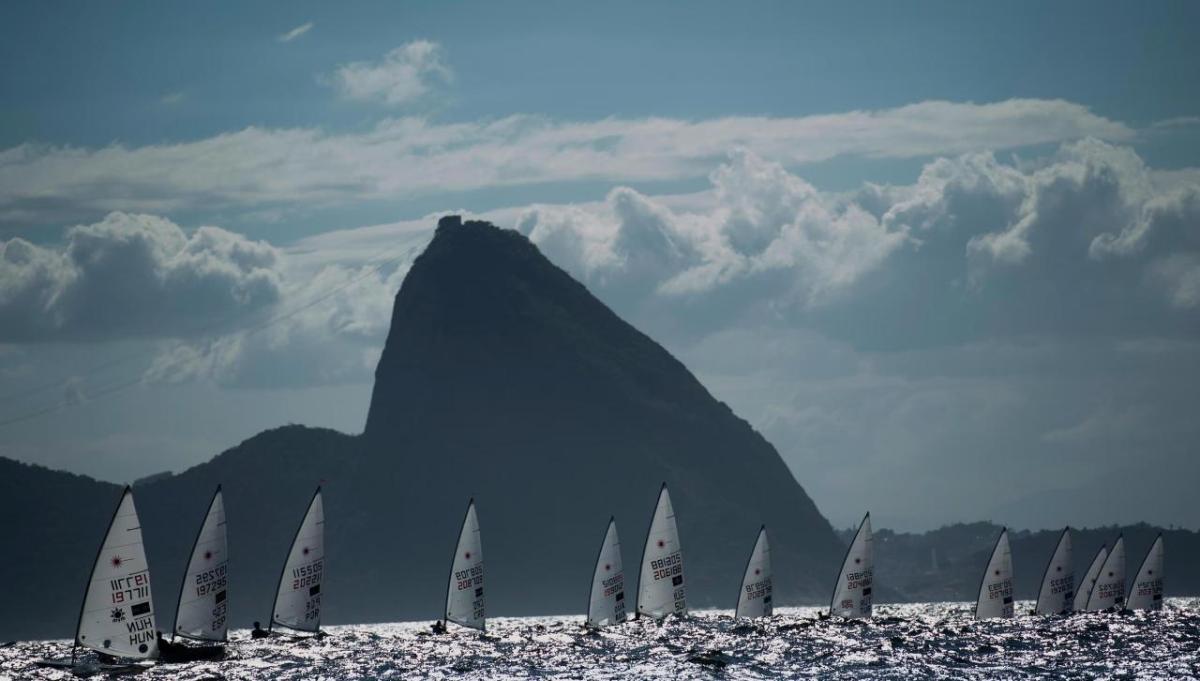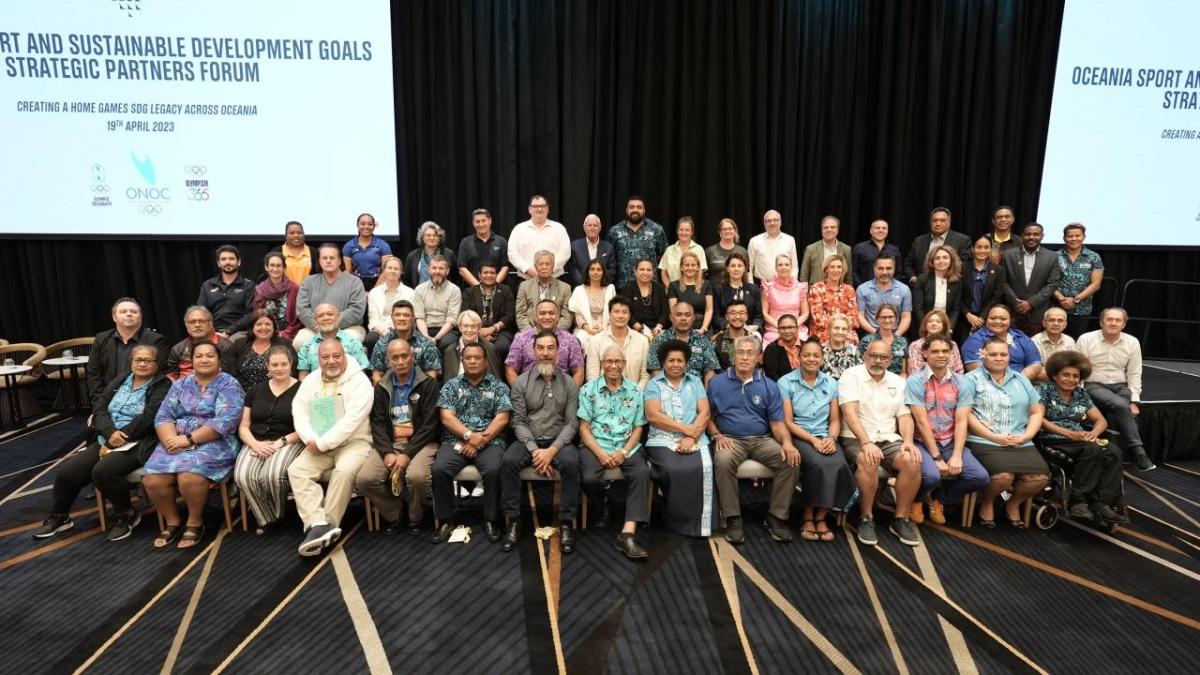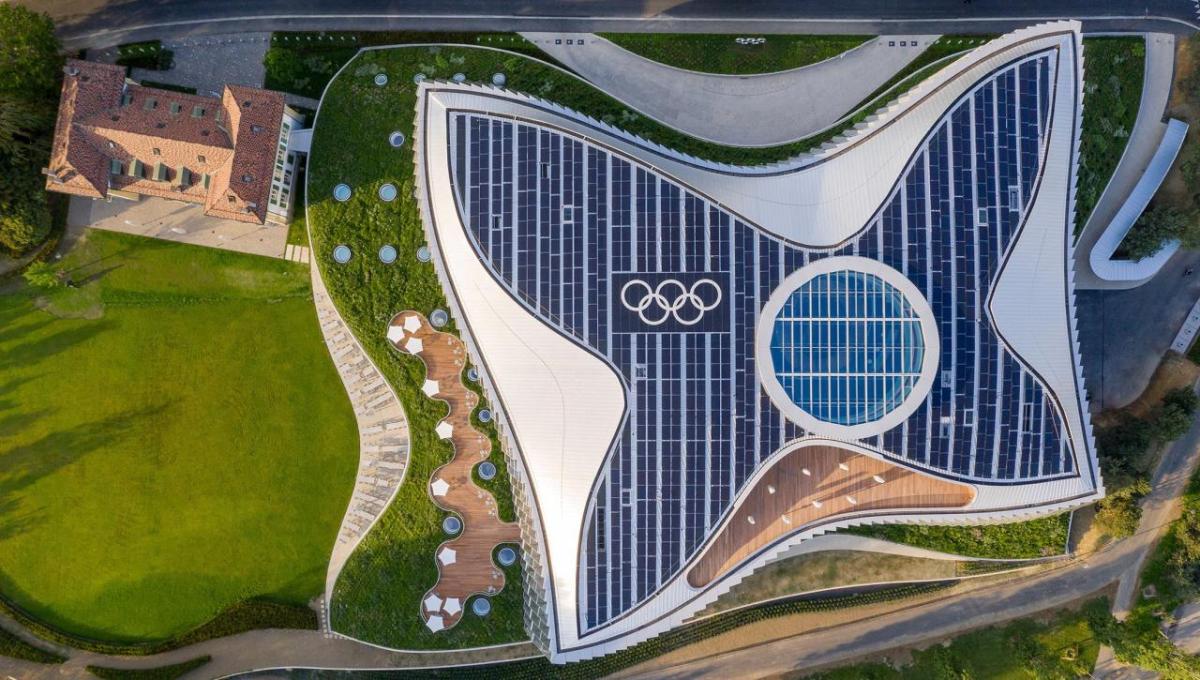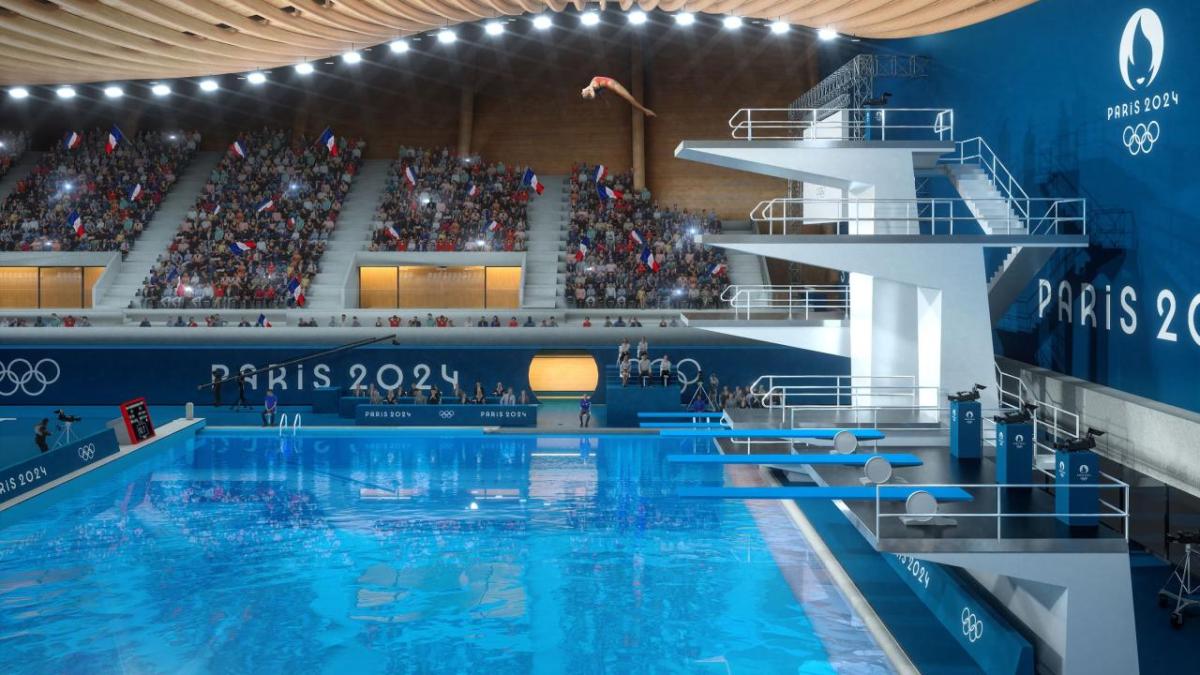World Environment Day 2023: Harnessing the Power of Sport to #BeatPlasticPollution
Plastics in all their forms – from packaging waste to microplastics – are polluting our oceans, rivers, lands and drinking water. The theme of the 50th annual World Environment Day is a reminder that businesses, organisations and governments, as well as people in their daily lives, need to take action to “beat plastic pollution”.
The International Olympic Committee (IOC) is committed to using the power of sport to help end plastic pollution. Here are four examples of how the Olympic Movement and the Games are playing their part in accelerating the transition to a circular economy.
1 – Walking the talk
At the IOC, we reviewed waste management policy and the materials consumed within our headquarters and at corporate events. Changes made over the last few years have seen significant reductions already, especially in single-use plastics.
So far we have:
- halved the amount of non-recyclable waste produced per employee, including plastics and other synthetic materials
- set the goal of eliminating single-use plastics where alternatives exist
- eliminated single-use plastics from our restaurants and specified reusable tableware for catering at our corporate events (for take-away meals, compostable cutlery is available)
- adopted sustainable sourcing guidelines for signage and branding (items are rented or reusable, while synthetic materials are made from recycled plastic), textiles and gifts (synthetic materials include recycled content, and packaging is reduced).
2 – Towards sustainable Games
Sustainability is a core commitment of Olympic Agenda 2020+5 – the Olympic Movement’s strategic roadmap. It includes a commitment to foster sustainable Olympic Games and to ensure that sustainability is mainstreamed throughout all aspects of their planning and delivery.
Addressing plastic pollution has not been overlooked in the planning for the Olympic Games Paris 2024. Three examples involve catering, construction and procurement policy.
- An estimated 13 million meals and snacks will be served during the Olympic and Paralympic Games. The organisers are committed to a 50 per cent reduction in single-use plastics in catering compared with previous Games. Tableware will be reused; take-out catering will rely on cardboard and paper alternatives; and used plastics will be collected and recycled. Drinks will be in returnable glass bottles and from fountains.
- New construction has been minimised, with a heavy emphasis on sustainable features in venues. Seats at the Aquatics Centre and La Chapelle Arena (the venue for badminton and taekwondo) will be made entirely from post-consumption plastic recycled locally. The design of the Olympic Village also includes the use of recycled plastic.
- The same philosophy informs the wider procurement policy for the Games. Paris 2024 developed guidelines and a programme to encourage suppliers and licensees to embrace eco-design and plastic reduction.
3 – The Power of Sport: the Big Plastic Pledge
Shocked by the extent of plastic pollution while competing in oceans around the world, Olympic sailing gold and silver medallist Hannah Mills founded the Big Plastic Pledge in 2019, with IOC support.
"I believe that, through the power of sport, we can change the fate of our planet,” says Hannah, who is also an IOC Sustainability Ambassador.
The campaign harnesses sport to unite athletes, fans, volunteers and event organisers behind the goal of reducing single-use plastic. As each person changes their habits, the ripple effect can become huge, influencing brands and policymakers.
The Big Plastic Pledge is set to reduce single-use plastic in our daily lives by taking at least three actions, such as adopting refillable water bottles, refusing plastic packaging and encouraging sports clubs and event organisers to find alternatives to single-use plastic.
Other pledges include switching to reusable food containers, cutlery and straws.
The Big Plastic Pledge now has the backing of a host of athlete ambassadors across a wide variety of sports. David Haze, a top UK paddleboarder and eco-activist, has recently joined forces with Hannah to co-lead the campaign.
4 – From global to local: Collaborating in Oceania
Communities across Oceania want to influence environmental policy and take practical action beyond beach and river clean-ups, but don’t know how. In response, a new collaboration has been launched to engage with young people, their local communities and policymakers to drive action on plastic.
The IOC is collaborating with the Oceania National Olympic Committees (ONOC) and other strategic partners to increase cooperation on coastal and waterway pollution prevention. Through sport, a range of IOC and UN Environment Programme (UNEP) initiatives on plastic are being integrated, including the existing Love Your Coast campaign, Heroes Programme, Olympic Day/Weeks and Voices of the Athletes.
The sport-based approach is designed to inspire youth leaders, increase their capacity to mobilise their communities and bring about changes in behaviour. By identifying youth ambassadors, helping them create action plans and sharing their stories, the joint programme hopes to spur lasting change.
Young people will be educated to understand how plastics are threatening life in oceans and on land, and affecting health. National Olympic Committees in Oceania are using their voice and influence in the region to engage with education ministries to introduce teaching about plastics in national curriculums, starting with Papua New Guinea and the Solomon Islands.
Alongside UNEP, other IOC partners include: the Secretariat of the Pacific Regional Environment Programme (SPREP), GEF Islands alliance of small developing states and International Union for Conservation of Nature (IUCN).





